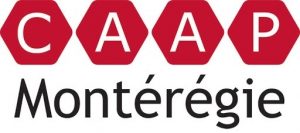Demystifying the rights of residential seniors
Recognizing elder abuse
Published on July 6, 2023 by Andrée Rochon. Journal Le Canada Français, page A-19.
In Quebec, seniors are increasingly choosing to live in private seniors’ residences (PSRs) for a number of reasons. The main reasons for this decision are: the death of a spouse, the maintenance of a home that is becoming too heavy a burden, the need to socialize, and physical health problems. The security provided by an environment that often resembles a small community is also a factor in a senior choosing this lifestyle. But what about abuse in PSRs?
I won’t go into an analysis of the new law here, but the first thing you need to know is that “any health and social services provider or any professional recognized under the Professional Code in the exercise of his or her duties or profession who has reasonable cause to believe that a person is being abused must report the case without delay for a wide range of clienteles, including vulnerable residents of private seniors’ residences (PSRs)”. For people who do not qualify as professionals or service providers, reporting is “voluntary”, but not mandatory. Generally speaking, abuse can be physical, psychological, organizational, financial, sexual or negligent.
Abuse of vulnerable seniors can be perpetrated by anyone in the community, including neighbors, attendants, nurses, managers, landlords, secretaries, sons, daughters, grandchildren, husbands, wives and sometimes caregivers. Some of these people may also be unaware of the disturbance experienced by the older person during these manifestations of abuse, and may not be aware of the damage caused by their behaviour.
Unfortunately, abuse tends not to want witnesses. It often takes place in the intimacy of the person’s relationship with the abuser. It can also be done publicly in order to intimidate, insult or embarrass, or to ensure that the senior complies with procedures.
Several levels of mistreatment are observed by PSR residents without them recognizing it as mistreatment. Here are a few facts reported by seniors in PSRs. The following are considered to be PSR abuse: when a manager raises his voice unnecessarily in a discussion with a senior about his refusal to accept a rent increase; when a senior’s birthday is deliberately not acknowledged, while those of other residents are; when a senior is threatened with eviction for no good reason; when a senior is not given the time to explain withdrawals from his bank account, telling him that he doesn’t understand anything anyway.
PSR abuse is nothing new. The Act to Combat Elder Abuse and Abuse of Other Vulnerable Persons and to Monitor the Quality of Health and Social Services now provides a framework for the process of protecting seniors and other vulnerable persons. This law provides a framework, definitions and information on situations of vulnerability and how to remedy them.
For further information, please contact CAAP Montérégie, liaison@ caapmonteregie.ca. For information on elder abuse, contact the Aide Maltraitance Adultes aînés line at 1-888-489-2287.



